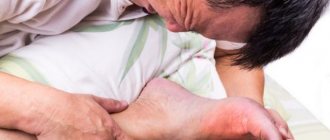Many women, having heard a lot about the peculiarities of menopause, are afraid of its arrival and want to delay the onset of this period in every possible way. But, no matter how much you want, nature will take its course, and menopause will one way or another enter the life of every representative of the fair sex. This process is inevitable, and you should not be afraid of it. The main thing is that everything corresponds to physiology and does not go beyond the norm. After all, there may be various deviations, such as early menopause. Why menopause can occur at a young age and how to prevent it are the main questions asked to the doctor at the appointment.
General information
It is known that menopause is a period of gradual decline in female reproductive function. It usually begins at 45–50 years of age and often has individual variability. The changes are based on a decline in the production of hormonal regulators - brain and ovarian. First, there is an imbalance in the synthesis of gonadotropins, which provokes irregularity in the female cycle (premenopausal stage). Dystrophic changes occur in the ovaries: death of eggs, atresia of follicles, lack of ovulation. The production of estrogen and progesterone decreases. Everything is leading to the fact that menopause itself begins, that is, the last menstruation.
Menopause includes the next 2–8 years, called postmenopause. During this period, changes are observed in various organs and systems caused by a deficiency of sex hormones. And first of all, the gynecological sphere suffers. Certain symptoms appear that indicate a transition to a new stage of life. Some women experience them especially painfully, while others try not to notice. But one way or another, everyone will face the manifestations of menopause.
Possible health problems during menopause
Problems in women during menopause are primarily associated with menopausal syndrome. It represents the reaction of the female body to changes caused by the decline of reproductive function. According to statistics, in only 18% of women this syndrome can last for a year, and in the vast majority (40-60%) it can last for five years or more.
Causes
Thus, the causes of menopause lie in the physiological restructuring of the body and age-related changes. This is normal and should not be a cause for concern. But premature menopause, which occurs in women aged 30, should alert you and become a signal for a thorough examination. It is necessary to understand what led to the pathological attenuation of the reproductive function, because at this time it must still be strong. The causes of early menopause may include various factors - both internal and external. The source of the problem is:
- Genetic and chromosomal abnormalities.
- Endocrine pathology (hypothyroidism, diabetes mellitus).
- Previous operations (removal of ovaries).
- Gynecological diseases (including sexually transmitted infections).
- Eating disorders (obesity, anorexia).
- Irrational use of hormonal contraception.
- Adverse habits (smoking, alcohol abuse).
- Radiation exposure, chemotherapy.
- Occupational hazards.
The most dangerous thing is when one woman combines several unfavorable factors at once. Then the risk increases significantly, making early menopause very likely. But it is quite difficult to assess the contribution of certain predisposing factors, because the body also has a certain supply of compensatory mechanisms.
A qualified specialist can understand why early menopause develops. And the woman just has to come to him for examination.
Early menopause - what to do?
Suspecting the symptoms of this pathology, women often address a question to the gynecologist regarding what needs to be done if early menopause occurs. To confirm your assumptions, you need to contact a medical institution and undergo a consultation. A comprehensive examination will help determine the cause of the disorder and prescribe the necessary course of therapy.
How to stop early menopause?
Early onset of menopause, according to gynecologists, is difficult to prevent. It is impossible to stop changes that have already begun. Considering these circumstances, all actions of doctors in case of such a disorder as early menopause are aimed at improving the general well-being of the patient and eliminating symptoms. In this case, an individual course of therapy is selected, including the use of hormonal drugs, physiotherapeutic procedures, and adherence to a diet.
Symptoms
It should immediately be noted that the symptoms of early menopause in women do not differ from those during the physiological course of this period. They only come before the age of 40, which creates all the troubles. Shifts occur in psychoemotional, neurovegetative and endocrine regulation, which leads to somatic dysfunction and accordingly affects well-being. The first signs of early menopause include:
- Menstrual dysfunction.
- Flushes of heat in the body, redness of the face.
- Increased sweating.
- Migraine-type headaches.
- Fatigue, general weakness.
Menstruation during menopause is called regulus. They have a different character: rare and scanty or, conversely, abundant or long-lasting. But they are united by the anovulatory cycle and gradual cessation until menopause. In other cases, you need to look for another cause of metrorrhagia.
Special mention should be made of emotional disorders, which manifest themselves in the form of irritability, mood swings, anxiety and tearfulness, and insomnia. Memory and concentration deteriorate, and the ability to enjoy life decreases. Considering the functional characteristics of the hormones responsible for the onset of menopause, we can say that the most noticeable changes occur in the genitourinary system. Women suffer from the following symptoms:
- Dryness and itching in the vagina.
- Discomfort during sexual intercourse.
- Decrease and loss of libido.
- Frequent urination.
But the most unpleasant consequence of menopausal changes at a young age is the inability to conceive a child. Due to hormone deficiency, the uterine mucosa undergoes atrophic processes, which is incompatible with embryo implantation. And the absence of ovulation, that is, the release of a mature egg from the follicle, makes fertilization itself impossible.
Involutional processes also affect other systems of the body: cardiovascular and digestive, endocrine and immune, skin and appendages and various types of metabolism. Therefore, symptoms of early menopause also include:
- Cardiopalmus.
- Pressure instability.
- Bloating, constipation.
- Dry skin, wrinkles, hair loss.
- Increase or decrease in body weight.
- Allergic reactions.
In women, the risk of osteoporosis, arterial hypertension, atherosclerosis and diabetes mellitus increases. These manifestations contribute to disruption of the usual rhythm of life and worsen health. Therefore, early menopause creates many problems for women, requiring timely detection and adequate therapeutic correction.
It should be understood that menopause at 30 is a clear deviation from the norm. But the manifestations of early menopause are the same as those of age.
Early menopause is normal
In most cases, premature menopause should be considered a pathological condition indicating problems with women's health. However, in some cases, early cessation of menstruation is a physiological phenomenon. This applies to women who, from generation to generation (mother and/or grandmother), have a tendency to prematurely end menstruation.
In such a situation, they talk about the hereditary nature of early menopause. This feature of the woman’s reproductive system is explained by the premature depletion of follicle reserves in the ovaries. Menopause is often preceded by a period of menstrual irregularities and deterioration in health.
Additional diagnostics
To confirm early menopause, clinical data alone are not enough. They should be supported by the results of additional research. The most important is a blood test for the hormonal spectrum, which evaluates the activity and concentration of the main substances:
- Follitropin.
- Luteotropin.
- Estradiol.
- Progesterone.
In addition, biochemical testing includes the determination of electrolytes (calcium), glucose, renal and liver tests. Gynecological problems also require cytological examination (vaginal smear) and pelvic ultrasound. And symptoms from other organs create the need for differential diagnosis of premature menopause with other diseases.
Treatment
Having confirmed climacteric changes in the body, you need to eliminate them as soon as possible. Therapeutic correction measures are aimed at the mechanisms of pathology and its probable causes. Therefore, only a doctor prescribes therapy, and a woman should follow his recommendations in everything.
Medicines
Medicines play a key role in the treatment of menopause at 35 years of age. They affect not only the root cause - hormonal disorders - but also eliminate their consequences at various levels. Many women require the following medications:
- Hormonal (Premarin, Divina, Femoston).
- Homeopathic (Klimaktoplan, Remens).
- Calcium preparations (Calcemin).
- Vitamins (groups B, E, C).
- Metabolic (ATP).
- Sedatives (Magne B6, Persen, Bellataminal).
Of particular importance is hormone replacement therapy, which is based on the use of estrogens (both in the form of single drugs and in combination with gestagens), including those of plant origin. Medicinal substances are taken in the form of tablets, drops, and vaginal suppositories. For those women for whom traditional hormones are contraindicated, preparations based on phytoestrogens (homeopathic) are used. Various anti-aging creams and gels are used for skin care.
To avoid negative consequences, any medications should be taken as prescribed by a doctor. All doses and course of administration are determined by a specialist.
Traditional methods
There are several recommendations from alternative medicine on how to reduce the symptoms of menopause or eliminate them altogether. Of course, the effect of traditional methods is not comparable to that of classical therapy, but if the doctor does not mind, then a woman can try the following remedies:
- Infusions of sage, valerian, chamomile and calendula, hawthorn and motherwort.
- Tincture of echinacea, ginseng, Chinese lemongrass.
- Blackberry tea.
And although at first glance these recipes are completely harmless and simple, in some women the herbal ingredients can cause an allergic reaction or intolerance. Therefore, you should not use them without consulting a specialist.
Prevention
To prevent early menopause, a woman should pay attention to her lifestyle and, if possible, eliminate negative factors that provoke premature hormonal dysfunction. Therefore, it is important to adhere to the following principles:
- Do physical exercise.
- To refuse from bad habits.
- Eat rationally.
- Maintain personal and intimate hygiene.
- Treat general and gynecological diseases in a timely manner.
In addition, you need to regularly see your doctor for preventive examinations - at least twice a year. This will help to timely diagnose various abnormalities in the body and prevent their further development. Well, if menopause comes earlier than expected, then a specialist will determine its cause and tell you how you can get rid of unpleasant manifestations.












